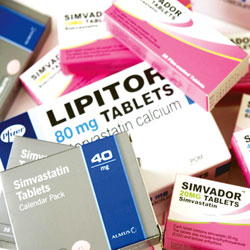 |
A new finding published recently in the medical journal Lancet, shows that high levels of high density lipoprotein (HDL), the good cholesterol, may not be as good as it was once thought to be. This discovery has caught doctors, scientists, and drug companies off guard.
HDL, unlike the bad cholesterol, low density lipoprotein (LDL), carries cholesterol out of the arteries and prevents blockages and disease in the lumen of the arteries. Hence it was believed that HDL protects the heart and ensures a healthy supply of blood and nutrients.
However, Lancet has published very disturbing yet compelling evidence which disproves earlier theories about HDL. According to the report, heart attack rates among people who are genetically predisposed to high levels of HDL and those with lower levels of HDL were no different.
In all fairness, there is indeed an immense body of evidence that associates high levels of HDL with low levels of heart attacks. But there is a difference between association and causal effect. For example, at one time there was only an association between cigarette smoking and lung cancer, but now we can authentically state that smoking causes lung cancer. Such causal data regarding low levels of HDL and increased incidence of heart disease is lacking.
Of course the results from other ongoing research studying the link between HDL and heart diseases are awaited and now more than ever, scientists are holding their breath to see how this cholesterol saga unfolds. Drug companies are sorely disappointed because they were working on commercial drugs which would directly help increase HDL levels. If future studies of HDL successfully replicate the results of the Lancet report, these drugs might no longer be produced.
Thankfully the Lancet study has not influenced two important dogmas: high levels of cholesterol (especially LDL) are clear-cut risk factor for heart attacks and statins are still the drug of choice for prevention and treatment of heart attacks in susceptible individuals. So if you are an adult, check your lipid profile regularly. And if it's on the higher side, try changing your eating habits and lifestyle, or use statins after consulting your doctor.


